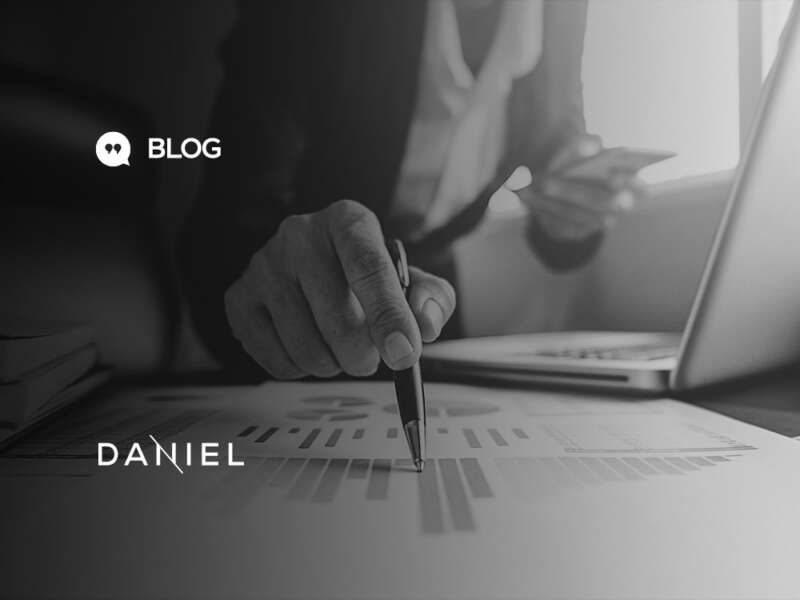The discussion on using empirical research for law is not a new one. In fact, the term “Jurimetrics” was already in frequent use in the US during the 1960s, when computers started to have a more radical effect on legal research capabilities.
So, what is jurimetrics?
Jurimetrics refers to the study of the law using quantitative methods. Using statistics, it is possible to identify key patterns and trends in the analysis of decisions by courts and tribunals. This approach is by its nature multi-disciplinary, bringing together the subjects of statistics and law.
The increased digitalization of court decisions in Brazil over the last decades has made it possible to apply a jurimetrics research approach to the Brazilian courts, and to make some useful predictions on how the courts are likely to act going forward.
Daniel Inova surveys
At Daniel Law, we believe in the union of intelligence and statistical analysis to ensure greater accuracy, knowledge and prediction of scenarios and decisions involving the courts.
We understand that, to improve our results and be able to bring differentiated value to the market, we need to properly understand how the courts are positioned.
Our research institution, Daniel Inova, recently prepared preliminary data analysis surveys concerning patent and trademark actions, based on which it was possible to extract some interesting insights and information about the trends in each area.
To provide a sample, we have briefly highlighted some of the findings of these reports below (in this post, we focus on the type of injunctive relief available in Brazilian patent and trademark cases).
If you would like to receive a full version of the report, with further data and insights on the Brazilian courts, please contact the Daniel Inova team here.
Data analysis for patents
For patents, we considered data extracted from the survey of patent lawsuits filed during the 1st half of 2021 at the Federal Court of Rio de Janeiro – JFRJ (71.9% of cases), at the Court of Justice of Rio de Janeiro – TJRJ (12.5% of cases) and at the Court of Justice of São Paulo – TJSP (15.6% of cases) as a basis for this research.
Among this data, we found that, of the total number of actions involving patents, 75% will include a request for an injunction. In the period analyzed, only 18.75% of the preliminary injunctions had not yet been considered by the courts.
This means that in 2021, more than 80% of the cases with a preliminary injunction were analyzed and had an interlocutory decision within 6 months. Further, most injunction requests were granted (only 45.8% of the processes had their injunctions rejected).
From such data, it is possible to see that Brazilian judges are in favor of preliminary injunctions in patent cases. The data further shows that the courts are dealing with such demands with agility, including through appeals mechanisms.
Overall, this data shows quite a favorable scenario for those who seek the Brazilian courts to urgently enforce their patent rights.
Data analysis for Trademarks
For trademarks, the same courts and timeframe as mentioned above were considered in the survey: the Federal Court of Rio de Janeiro – JFRJ (72.2% of cases), the Court of Justice of Rio de Janeiro – TJRJ (5.1% of cases) and at the Court of Justice of São Paulo – TJSP (22.7% of cases).
We found that, from the total number of actions involving trademarks, 67.1% bring a request for an injunction. In the period analyzed, only 5.1% of the preliminary injunctions had not yet been considered by the courts.
Considering that we are only observing actions filed in the first half of 2021, around 95% of the cases with a preliminary injunction were analyzed and had already received an interlocutory decision within 6 months. It is important to note here that a considerable number of these actions were rejected (of the analyzed cases only 37.3% had an injunction granted).
Considering this, it is important to note that in actions involving trademarks, and despite the best efforts of the parties, the courts are often slow to find the existence of the necessary requirements for granting an injunction. In such cases, the appeal courts tend to maintain the position in the first instance decision.
Overall, the data shows a favorable scenario for those who seek the courts to urgently enforce their rights in trademark cases, demonstrating agility in analyzing this type of demand, which is usually more complex due to the specificity of the trademark area.
Final remarks
Above we have set out just some of the data and insights of our preliminary surveys on patent and trademark actions in Brazil. These reports will be fully updated and shared with all interested in the coming weeks.
If you would like to receive a copy of this material, please visit the Daniel Inova site and contact our team here.

